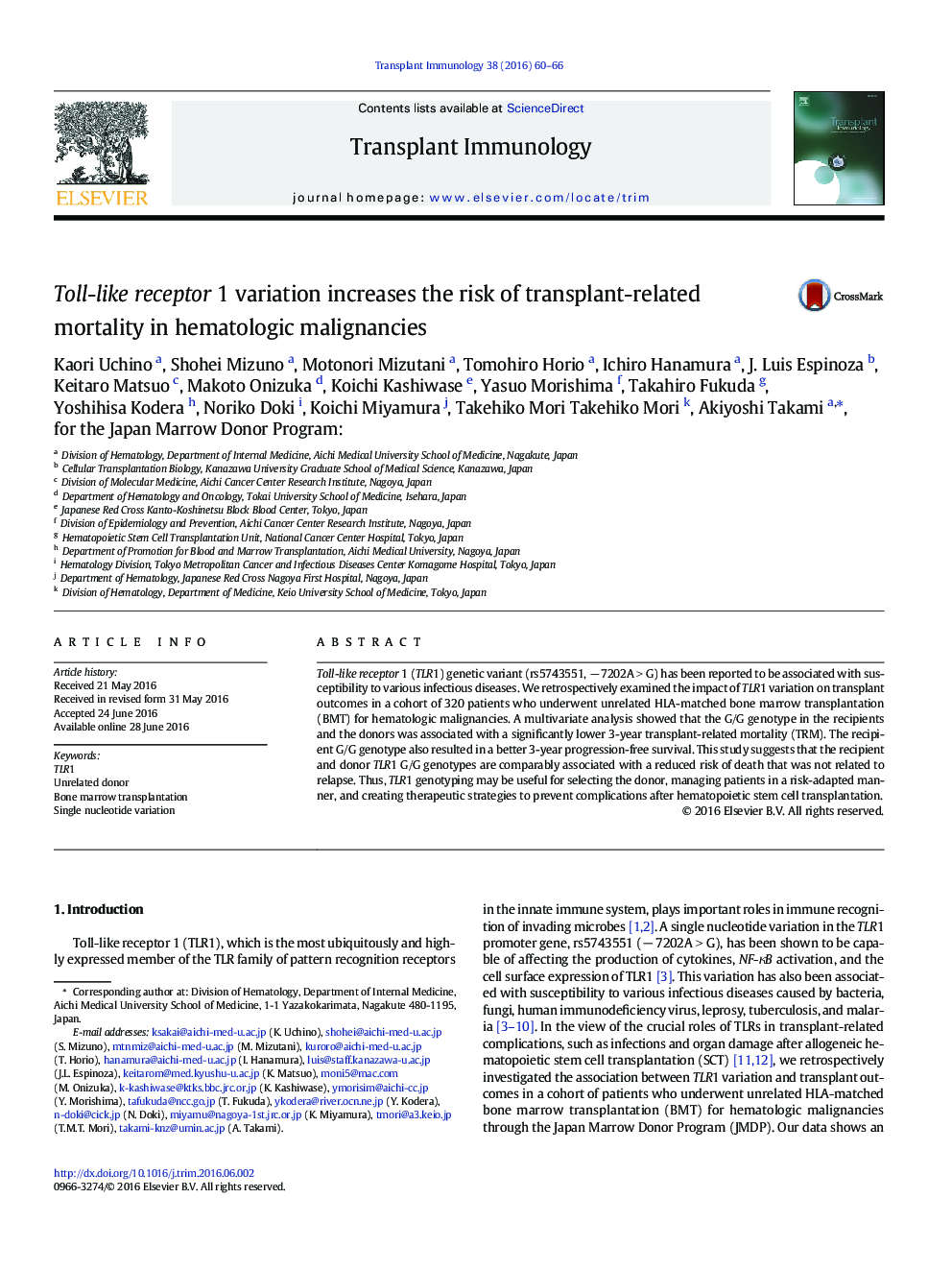| Article ID | Journal | Published Year | Pages | File Type |
|---|---|---|---|---|
| 6125962 | Transplant Immunology | 2016 | 7 Pages |
Abstract
Toll-like receptor 1 (TLR1) genetic variant (rs5743551, â 7202A > G) has been reported to be associated with susceptibility to various infectious diseases. We retrospectively examined the impact of TLR1 variation on transplant outcomes in a cohort of 320 patients who underwent unrelated HLA-matched bone marrow transplantation (BMT) for hematologic malignancies. A multivariate analysis showed that the G/G genotype in the recipients and the donors was associated with a significantly lower 3-year transplant-related mortality (TRM). The recipient G/G genotype also resulted in a better 3-year progression-free survival. This study suggests that the recipient and donor TLR1 G/G genotypes are comparably associated with a reduced risk of death that was not related to relapse. Thus, TLR1 genotyping may be useful for selecting the donor, managing patients in a risk-adapted manner, and creating therapeutic strategies to prevent complications after hematopoietic stem cell transplantation.
Related Topics
Life Sciences
Immunology and Microbiology
Immunology
Authors
Kaori Uchino, Shohei Mizuno, Motonori Mizutani, Tomohiro Horio, Ichiro Hanamura, J. Luis Espinoza, Keitaro Matsuo, Makoto Onizuka, Koichi Kashiwase, Yasuo Morishima, Takahiro Fukuda, Yoshihisa Kodera, Noriko Doki, Koichi Miyamura,
